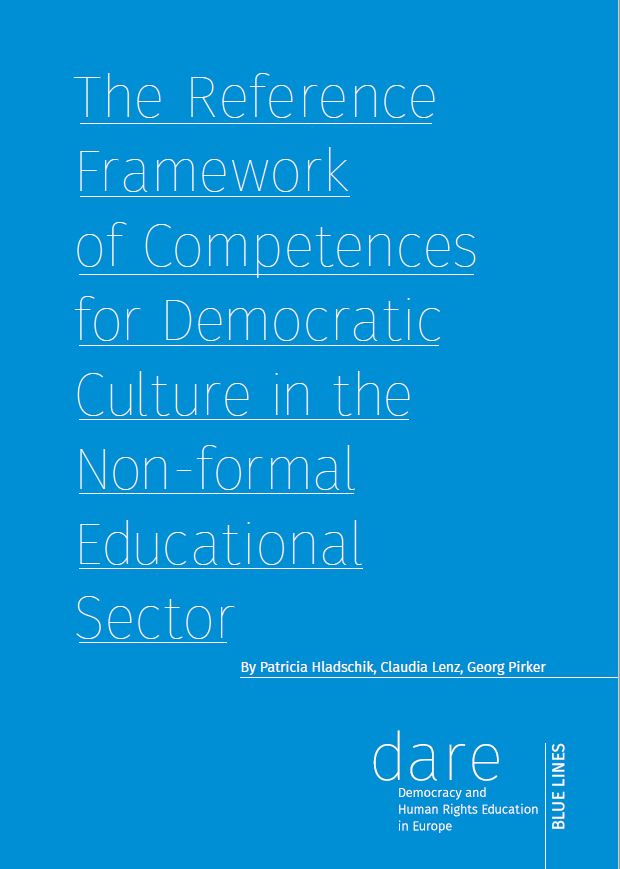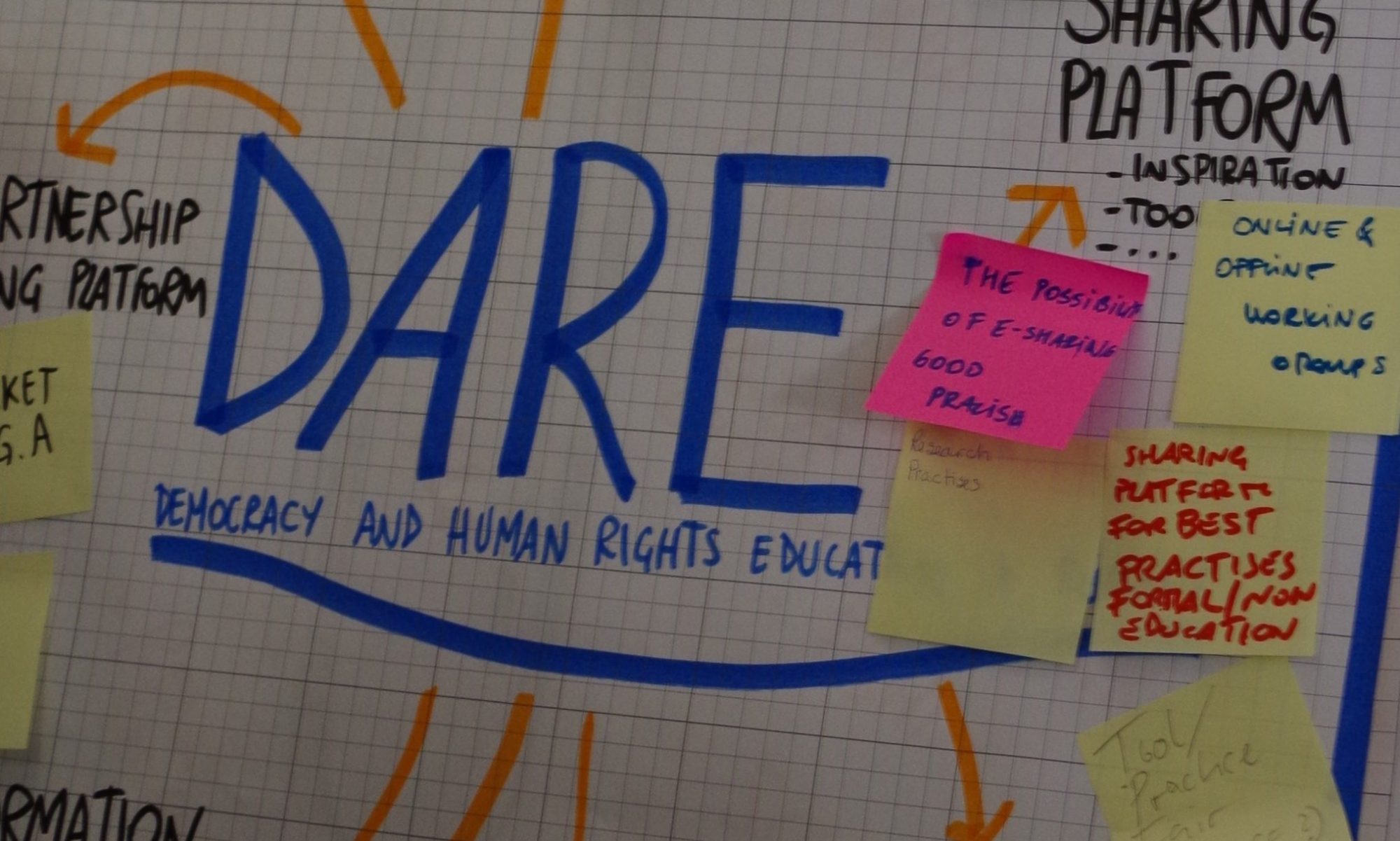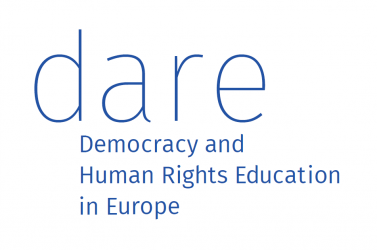DARE and Zentrum Polis have been coordinating an experiential two years test of the Council of Europes Reference Framework of Competences for Democratic Culture in various settings of cooperation between formal and non-formal education.

in the Non-Formal Educational Sector
Patricia Hladschik, Claudia Lenz, Georg Pirker (Ed.)
With articles of Ole Jantschek, Laura Meijer, Simon Oesterle, Hanna Lorenzen, Thimo Nieselt and contributions from Paola Carega, Nils-Eyk Zimmermann, Ramón Martínez.
91 pages, DARE Blue Lines 2020
How can the RFCDC interplay with other competence frameworks? How can a competence based approach contribute to build a bridge between the inherent field logics of formal and non-formal education? Where are practical benefits and limitations? An extensive field study and practice test allowed to draw findings for the field of cooperation between different sectors of learning, for using the RFCDC as a tool to support peer-learning, and as a reflection instrument for the design and conduction of non-formal learning processes, of educational practice and to support educators in EDC/HRE reflecting about their role and position in learning and educating, for, through and and about democracy.
This volume of the DARE Blue Lines asks for a cooperative approach between different sectors of education, it gives practical hints for educators, as well as tries to raise awareess for acknowledging the field specific professional discourses, qualities and standards of formal and non-formal citizenship education as a basic condition for successful cooperation eg between Youth Work and school. There are introduced good practices from the field of developing critical youth citizenship, civic education and international exchanges of young people that show potential of integrated approaches, but also identify barriers. Understanding that EDC/HRE is a cross-sectoral goal which can best be realized in an integrated lifelong learning perspective, we encourage to use the BLUE Lines to critically investigate the own educational field praxis, adjust if necessary and then go deeper.
The partnership worked from 2019-2021 and was supported by the federal agency for civic education (bpb) in the framework of a NECE focus group.

